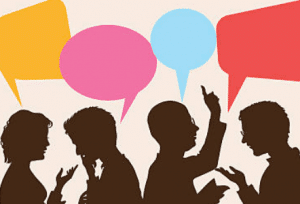Is Conflict In the Workplace Bad?
Conflict is a part of life, and that includes our work life. Some teams try to avoid it, but this isn’t always the best approach. Certain types of conflict can actually help a team work better together. So, let’s dive into this a bit more to get a better understanding of conflict in the workplace.
Is All Conflict Bad? Well, it depends. Conflicts happen when team members don’t agree on something. These disagreements can come from different places. Let’s use Professor Donelson Forsyth’s idea of four “levels” of conflict to make this easier to understand.
Levels of Conflict
The first level is conflict about facts or data. It’s usually the easiest to solve because there’s often evidence we can look at to figure out who’s right. The second level is when people disagree about how to do something. By setting some ground rules or guidelines, teams can deal with these differences in a clear and open way. This can help to stop misunderstandings from happening. The third level gets a bit trickier. This is when team members disagree about why they’re working on something. If there isn’t a clear vision, members might start to work against each other. This can lead to bigger arguments that are harder to solve. The fourth level is the hardest to deal with. This is when the conflict is about personal values or beliefs. These conflicts can be long-lasting because people are often unwilling to change their core beliefs.
Understanding which level a disagreement is at can help team members to solve it more efficiently. Sometimes, people might just have to agree to disagree and move on.
Task vs. Relationship Conflict
Apart from these four levels, conflict can also be divided into two basic types: task-based or relationship-based. Task-based conflicts are about work tasks and can help a team think more creatively. On the other hand, relationship-based conflicts are more personal and usually lead to negative outcomes. Sometimes, task conflict, i.e., disagreements about how to accomplish a task, turn into relationship conflicts. Unfortunately, when some people don’t get their way, they make it personal. It’s best to address these types of issues early and often so the team doesn’t become fractured and dysfunctional.
Conclusion
If managed correctly, conflict can help a team work better together. It can improve decision-making, boost creativity, and build trust within a team. However, conflict needs to be dealt with correctly. Unaddressed conflict is the worst kind and can damage a team’s dynamics.


